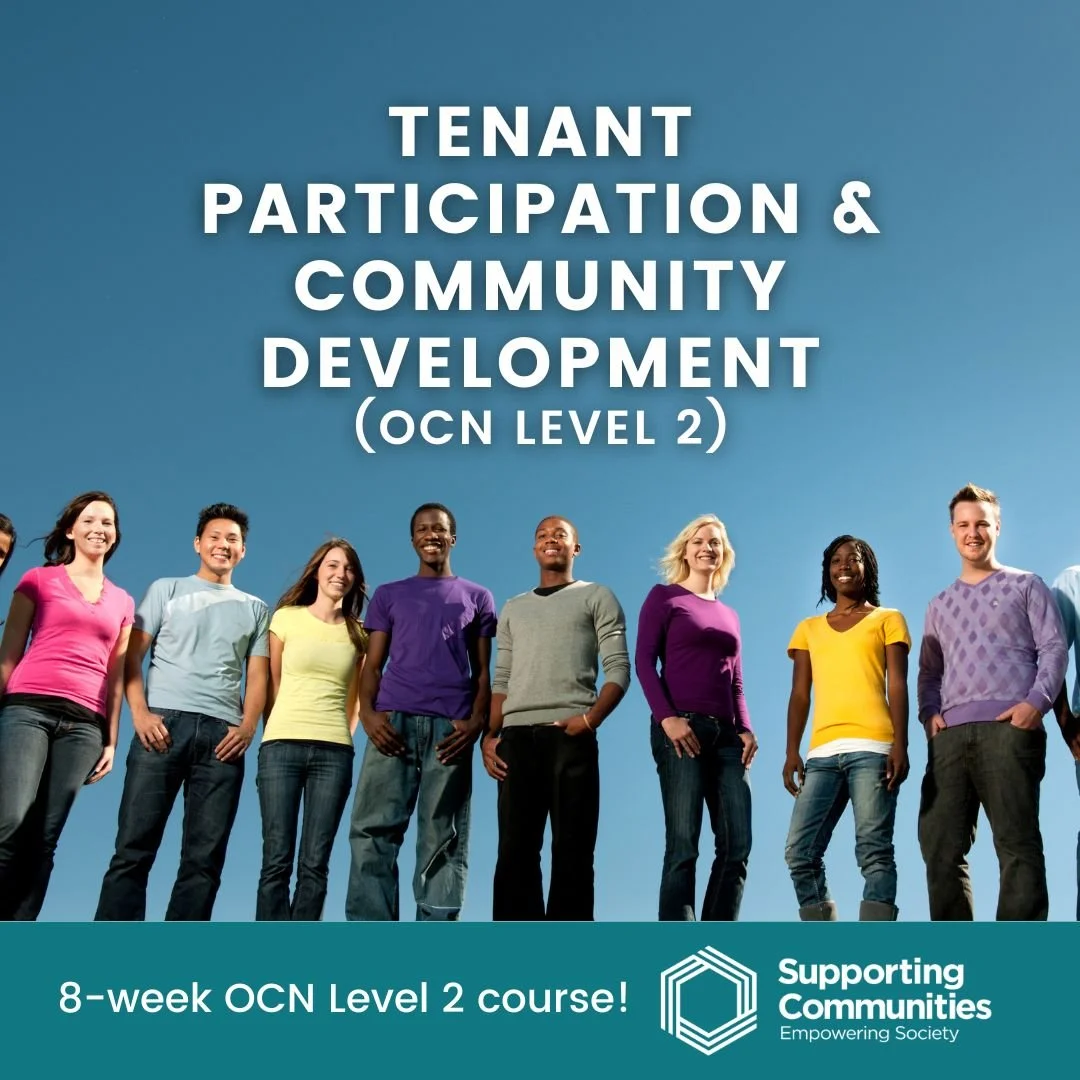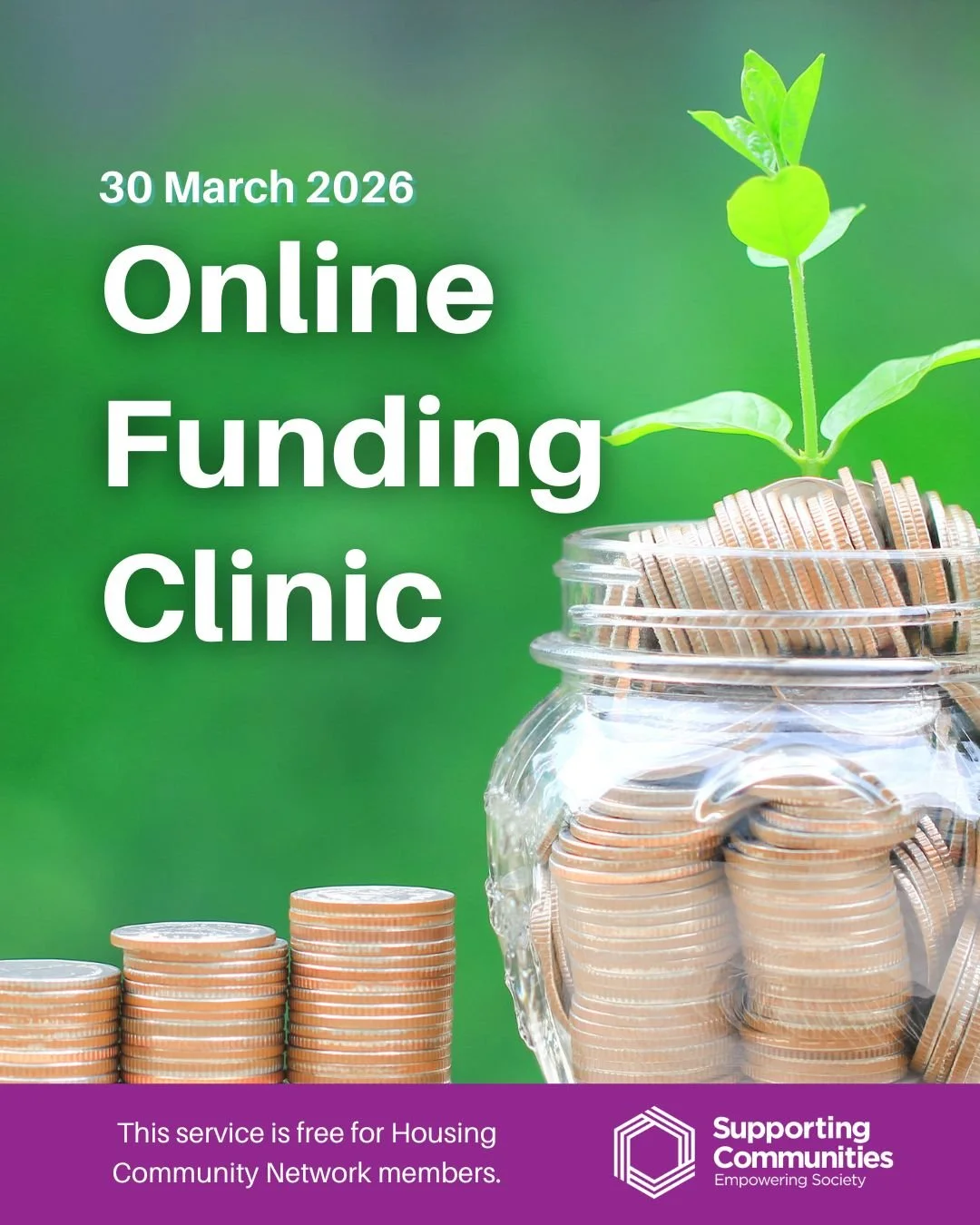Tenant Participation in the Time of Coronavirus
/It feels like we are all in crisis reaction mode as the realities of ‘social distancing’ and ‘self-isolation’ become the new normal. At Supporting Communities, we have been having a lot of conversations (online of course!) about ways we can continue to provide support and engage with community groups and what we’ll have to change or refocus to help get through this emergency.
Instead of our regularly scheduled blog post for March, we decided to let you in on the ideas that came out of our conversation so that it might help others and that it might spark more ideas about how to be as proactive and helpful as possible to our communities in these trying times.
Please join us in the conversation using #NextLevelTP.
Sheenagh McNally, Head of Corporate Services
Sheenagh McNally
The ethos of Tenant Participation is needed more now than ever in the eye of the COVID-19 storm! Landlords have a responsibility to ensure tenants have warm, comfortable, affordable and safe homes – but it extends to much more than that. At no time has it been more important to stand shoulder to shoulder with tenants to show them that you care about their health and well-being.
This is not a time for processes and procedures, this is a time for compassion and caring and doing all that is necessary to look after our fellow citizens. Social landlords that are lucky enough to already have involved tenants can work with them to reach the most vulnerable people in their estates, sheltered and supported living schemes. The tenants that have already demonstrated the will to step up and volunteer through engagement structures can help identify vulnerable people in their areas, people with medical conditions, the elderly, and those with little or no family support.
In the coming weeks, social isolation will undoubtedly exacerbate the levels of loneliness that some people already endure in our communities – let’s do everything we can to assist tenants and community groups to reach out to the people who most need support.
What can landlords do? What can staff do? (See the list that our staff has compiled below.)
This is a worrying time for us all and even more so for the vulnerable, let us all work together to show we care!
Aidan Kearney, Senior Trainer
Aidan Kearney
I would add that the quality of information going out needs to be high and credible. There’s too much misinformation circulating, we must ensure we are sharing accurate and up to date information about the virus and the government’s response.
I know a lot of folks are probably seeing some of the same crazy videos, articles, and quotes full of misinformation that I have seen being shared from supposed ‘experts’. This is no doubt spreading fear and panic without any substance or validity.
As housing and service providers, we all need to be careful about what we pass on and only signpost to legitimate information from the real experts to help inform people of the facts. We should concentrate on spreading the word about what practical help is available without adding to the panic that everyone is feeling.
There is a lot of good being done by communities to help each other. I’ve seen many brilliant examples of businesses, clubs and neighbours offering to help. We should find ways to support them.
Healy King, Marketing & Communications
Healy King
It’s really concerning seeing some of the things being spread around social media. Especially all the new scams going about that try to take advantage of people’s fear.
At the same time, being online is a real lifeline right now. We need to step up our efforts to help people get connected so that they can stay in touch with friends and family. Being able to make a face to face video call has become really important to me!
We shared a list of apps that people can use to make video calls and we’ll be putting out more ‘how to’ guides for those who are in a position to give it a try on their own or with phone support, but in the absence of our face to face digital training sessions, the very digitally excluded are going to need to rely on their immediate neighbours for some human interaction – perhaps through the window!
This is going to have to be a street by street effort to identify and check in on those who are most at risk, and the able amongst us all need to play our part.
Siobhán ONeill, Tenant Participation and Community Engagement Officer
Siobhán ONeill
Community organisations are doing so much to help people at the minute, but it’s hit or miss that people know about it. With many different groups, clubs, services, etc in each area, I think it would be beneficial for social landlords to carry out a mapping exercise of local areas and services that are available.
If we work collectively, we can make this information available by area, which will be less confusing for people looking for help.
Practical Actions for Housing Providers:
Give your tenant representatives direct line numbers to your staff so if there is an issue in their area, they can get access to the most appropriate person.
Keep in regular contact with your tenant reps and let them know about your contingency plans and changes as soon as they happen so they can pass on information quickly.
Make daily phone calls to the most vulnerable people - perhaps partnering with Good Morning Projects already working in the area.
Advise vulnerable tenants who they should contact at your organisation if they need any help getting shopping, newspapers, and prescriptions.
Talk to local community groups to support the work they are already delivering such as emergency supply hampers and meals on wheels.
Consider providing an emergency grant to assist community organisations and community representatives at this time.













